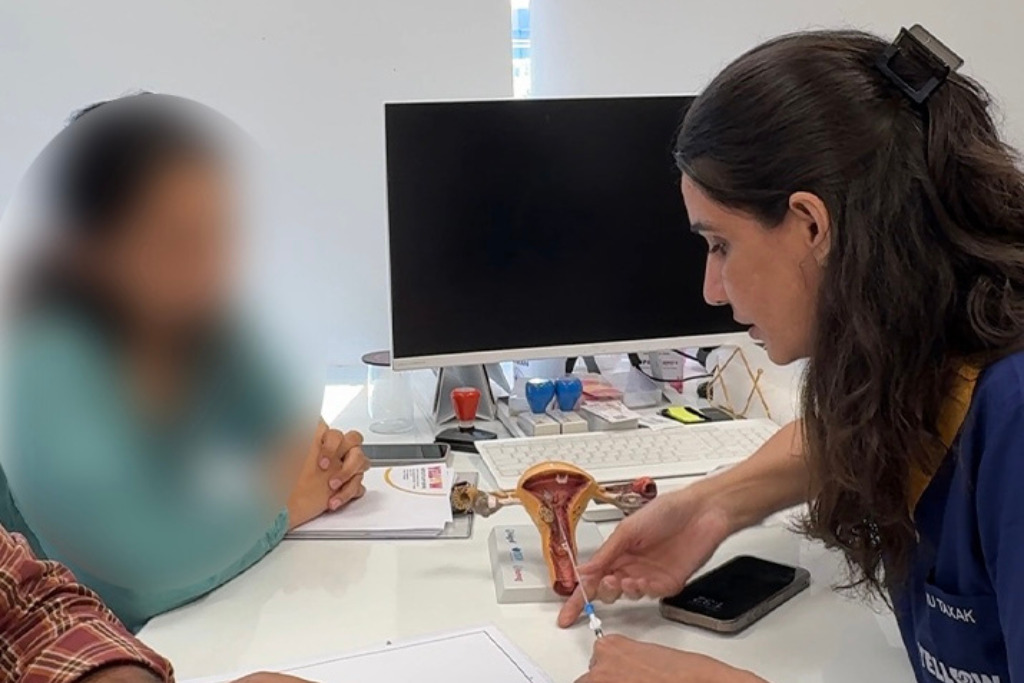Once considered a non-negotiable milestone, parenthood is now a choice and often a delayed one. Young Indians today are rethinking traditional timelines due to career ambitions, financial stability, changing gender roles, and shifting definitions of happiness.
The rise of DINK (Double Income No Kids) and DINKWAD (Double Income No Kids With a Dog) lifestyles reflects this cultural shift. Social media is filled with young professionals in their 30s prioritizing self-growth, travel, and financial security things that previous generations often sacrificed for early parenthood. At the same time, advancements in reproductive technologies like egg freezing, IVF, and surrogacy have given people more control over when they become parents. But while medical science offers solutions, these procedures come with emotional, financial, and ethical considerations. So, is there really a perfect time to have children? Or is the pursuit of an ideal age just a modern illusion?
The Science: Your Biological Clock vs. The Reproductive Industry
While society’s attitudes toward parenthood have changed, biology has not. Fertility isn’t just about when you want to have a baby—it’s about when your body can.
India’s Fertility Rates Are Declining: According to the National Family Health Survey (NFHS 2019-21), India’s Total Fertility Rate (TFR) has plummeted from 6.18 in the 1950s to just 1.9 in 2021 below the replacement level of 2.1. This suggests that as people delay childbirth, fewer children are being born overall, leading to long-term economic and demographic consequences.
The Reality of Age & Fertility
For Women: A woman is born with 1–2 million eggs, but by puberty, this reserve drops to 400,000. Fertility remains stable through the 20s, but by 30, the decline begins. By 35, conception chances shrink significantly, and by 40, they fall to just 5% per cycle. While menopause typically occurs between 45-55, fertility challenges arise much earlier, often catching many off guard.
For Men: Unlike women, men can produce sperm throughout their lives, but quality isn’t timeless. As men age, sperm motility and DNA integrity decline, increasing the risk of genetic mutations and disorders like autism in offspring.
The Rise of Reproductive Medicine: A Safety Net or an Illusion?
With fertility timelines tightening, egg freezing and IVF have surged in popularity, especially among urban, career-driven women in India. However, success rates vary dramatically with age, and the procedures are often expensive, invasive, and emotionally demanding—without a guaranteed outcome.This is why people are searching for answers to questions like:
- Why IVF Fails: Top 10 Reasons & How to Improve Success Rates
- Egg Quality vs. Quantity: What Matters More for IVF Success?
- Can You Get Pregnant Naturally After a Failed IVF Cycle?
Despite advances like AI-driven fertility treatments, genetic screening, and stem cell research, science still favors natural conception at an earlier age. The real challenge? Whether modern life allows it.
The Social Dilemma: Career, Gender Roles & The Cost of Parenthood
The Motherhood Penalty: Career vs. Parenthood
For women, the dilemma is often career vs. kids. While men are not expected to “pause” their careers after becoming fathers, working mothers face:
- A pay cut post-maternity leave (often called the “motherhood penalty”)
- Fewer promotions and career stagnation
- Bias in hiring, as employers assume they will “eventually” take a break
Women who delay pregnancy often do so to first secure their careers, but this can result in fertility struggles later. It’s a paradox: start early and risk career setbacks, or wait and risk biological limitations.

The Role of Men: More Than Just ‘Providers’
Modern fatherhood is no longer just about financial stability. Today’s fathers are expected to be emotionally involved in parenting, active in domestic responsibilities and balancing work and family life. With male infertility now accounting for nearly 50% of conception issues, the conversation has also shifted to:
- How to Increase Sperm Count Naturally Before IVF
- Male Infertility Treatments in 2025: What’s New?
- How Long Should Men Abstain Before IVF for Best Sperm Quality?
How to Naturally Boost Fertility in a High-Stress World
If you’re delaying parenthood, the best thing you can do is preserve and improve your fertility.
Nutrition: Antioxidants Are Your Best Friend
Oxidative stress damages egg and sperm quality. To counter this, eat:
- Vitamin C-rich foods (citrus fruits, berries, tomatoes, bell peppers)
- Vitamin E sources (nuts, seeds, avocados, olive oil, leafy greens)
- Omega-3s (found in fatty fish like salmon and trout)
The Breakfast Effect for Women with PCOS
PCOS (Polycystic Ovary Syndrome) is a leading cause of infertility in India. Research suggests that eating a large breakfast may help regulate insulin levels. Additionally, a low-carb, high-fiber diet (whole grains, beans, veggies) supports ovulation.
Exercise But in Moderation: Regular moderate exercise can boost fertility. However, over-exercising especially high-intensity workouts can reduce fertility. Ideal choices include strength training, yoga, and walking.
Cut Down on Alcohol & Smoking: Heavy drinking affects hormonal balance and lowers fertility, while smoking is linked to egg depletion and poor sperm quality.
The Future of Parenthood: Natural IVF & AI in Reproduction
While IVF has been the go-to fertility treatment, Natural IVF is emerging as a gentler alternative. Instead of hormone-heavy injections, it works with the body’s natural cycle and is less invasive. Meanwhile, AI-driven fertility treatments, lab-grown embryos, and genetic screening are changing reproductive science. However, as we push the boundaries of technology, new ethical concerns emerge:
- Will fertility become a “service” for the wealthy?
- Could AI predict “ideal” embryos, influencing human selection?

So, Is There Really a ‘Right’ Age to Have Kids?
The answer? There’s no universal “right” age but there is a right time for you. Your biological clock, career, relationships, finances, and personal aspirations all play a role. What matters is making an informed choice whether that means embracing parenthood early, delaying it with tech support, or opting out altogether. Because at the end of the day, parenthood isn’t just about timing it’s about readiness, choice, and what truly fulfills you.




